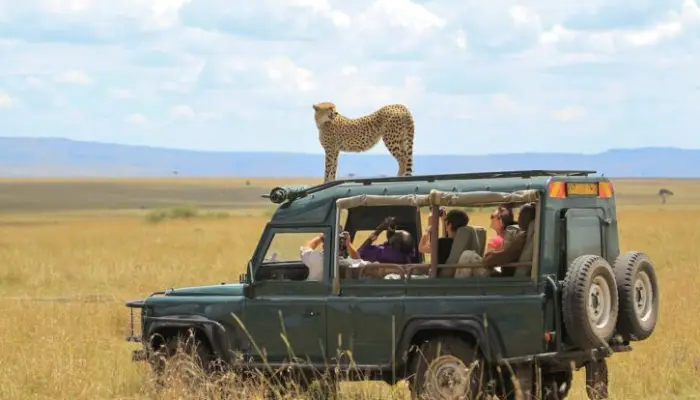An African safari is the dream of many adventurers and wildlife lovers. Africa's diverse landscapes, impressive wildlife, and rich culture make it a fantastic place for unique experiences. While safaris offer incredible opportunities for adventure and discovery, safety should always be a top priority. In this article, we will examine the main tips and precautions that will help you stay safe while enjoying the wonders of an African safari.
Choosing a Reliable Tour Operator
One of the most important steps in ensuring safety on a safari is choosing a reliable and experienced tour operator. Look for licensed and accredited operators with a good reputation for safe and responsible trips. Read reviews, ask for recommendations, and thoroughly study the safety protocols and customer feedback of your chosen operator.
Adhering to Local Rules and Regulations
Each African country and national park may have its own rules and regulations to ensure the safety of visitors and wildlife. Familiarize yourself with these recommendations and adhere to them at all times. This may include rules regarding safe distances from animals, staying on designated paths, and respecting local customs and traditions.
Stay Inside Your Vehicle
During a safari, the safest way to observe animals is from your safari vehicle. Do not attempt to exit the vehicle or stand up unless your guide has indicated it is safe. Animals may perceive people outside the vehicle as a threat.
Listen to Your Guide
Safari guides are experts in their field and possess extensive knowledge about local wildlife and terrain. Pay close attention to their instructions and advice, as they are there to ensure your safety. Follow their recommendations and ask questions if you are unsure about anything.
Packing Essential Items for Safety
Safaris often take place in remote areas with limited access to amenities. Be sure to take necessary items for your safety, such as:
- Medications and First Aid Kit: Carry any necessary medications, insect repellents, and a basic first aid kit.
- Sun Protection: Protect yourself from the African sun with sunscreen, sunglasses, and a wide-brimmed hat.
- Hydration: Drink plenty of water and bring a refillable water bottle with you.
- Flashlight: A flashlight or headlamp can be useful for navigating your campsite at night.
Being Informed About Health Risks
Some regions in Africa may have specific health risks, such as malaria or other vector-borne diseases. Consult with a travel clinic or your doctor before your trip to ensure you have the necessary vaccinations and medications. Follow their recommendations for preventing illness on safari, such as taking antimalarial drugs, using insect repellent, and wearing long-sleeved clothing during mosquito-active hours.
Responsible Wildlife Observation
Despite the allure of close encounters with wildlife, it is important to practice responsible and ethical wildlife observation. Avoid approaching or feeding animals, as this can disrupt their natural behavior and pose risks to both humans and wildlife. Maintain a safe distance, use binoculars and cameras with zoom lenses for close-ups, and respect the personal space of the animals.
Respecting the Environment
Leave no trace of your presence in the natural environment. Dispose of litter properly and avoid picking plants or disturbing the landscape. Follow the principles of eco-friendly and sustainable tourism, as respecting the environment contributes to the overall safety of the area.
Preparing for Changing Weather Conditions
Africa's weather can be unpredictable, so it is important to be prepared for changing conditions. Pack suitable clothing for both hot and cold weather, and bring rain gear in case of sudden showers. Comfort in various weather conditions will contribute to your overall safety and enjoyment of the trip.
Staying Calm in Unforeseen Situations
While safaris are generally safe, unforeseen situations can arise. If you encounter an unexpected or potentially dangerous situation, such as an animal approaching the vehicle or a sudden change in weather, remain calm and follow your guide's instructions. Panic can exacerbate the situation and put you at risk.
Conclusion
An African safari is a unique adventure that offers incredible opportunities to connect with nature and observe stunning wildlife. While the excitement of such an experience is undeniable, ensuring your safety should always be the top priority. By choosing a reliable tour operator, following local recommendations, staying informed, practicing responsible wildlife observation, and preparing for various situations, you can enjoy your safari with confidence and peace of mind. Remember, a safe safari is not only enjoyable but also one that respects the wildlife, environment, and local communities, ensuring these incredible experiences remain available for future generations.
